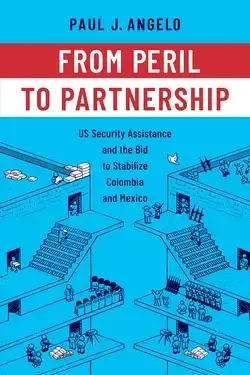
From Peril to Partnership
U.S. Security Assistance and the Bid to Stabilize Colombia and Mexico

Paul J. Angelo provides the first headlining case studies of Plan Colombia and the Mérida Initiative.
- Book
- Foreign policy analyses written by CFR fellows and published by the trade presses, academic presses, or the Council on Foreign Relations Press.
Plan Colombia and the Mérida Initiative are the two most significant U.S. security assistance efforts in Latin America in the twenty-first century. At a time when U.S. objectives in the Middle East and Central Asia were flagging, Colombia was a rare U.S. foreign policy victory—a showcase for stabilization and security sector reform. Conversely, Mexico struggled to turn the tide on the country’s scourge of crime and violence, even with an influx of resources aimed at professionalizing the country’s security, defense, and judicial institutions.
As Washington reconsiders its approach to stabilizing crisis countries after a challenging withdrawal from Afghanistan, From Peril to Partnership’s comparative analysis of Colombia and Mexico offers lessons for scholars and policymakers alike, providing insights into the efficacy of U.S. security assistance and the necessary conditions and stakeholders in partner nations that facilitate success. Crucially, private sector support, interparty consensus on security policies, and the centralization of the security bureaucracy underpinned Colombia’s success. The absence of these features in Mexico contributed to the country’s descent into chaos, culminating in the country’s highest-ever homicide rate by the end of the 2010s.
More on:
Drawing on extensive fieldwork, From Peril to Partnership evaluates to what extent security assistance programs helped improve the operational effectiveness and democratic accountability of Washington’s partners—Colombian and Mexican security forces. It answers why Plan Colombia achieved its objectives and why the Mérida Initiative underdelivered in Mexico. Most importantly, it goes beyond drug war theatrics and the “one-size-fits-all” approach to U.S.-led stabilization—at once, restoring agency to institutions on the receiving end of U.S. security assistance and helping chart a course toward more nuanced and effective U.S. policy.
More on:
 Online Store
Online Store